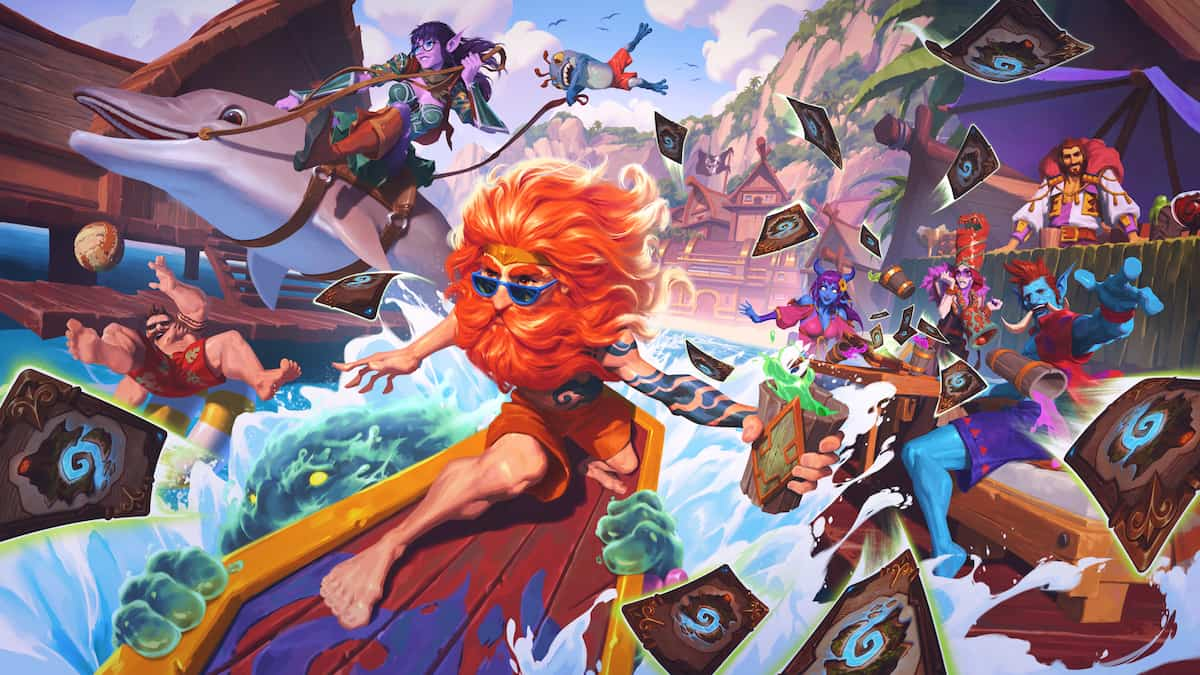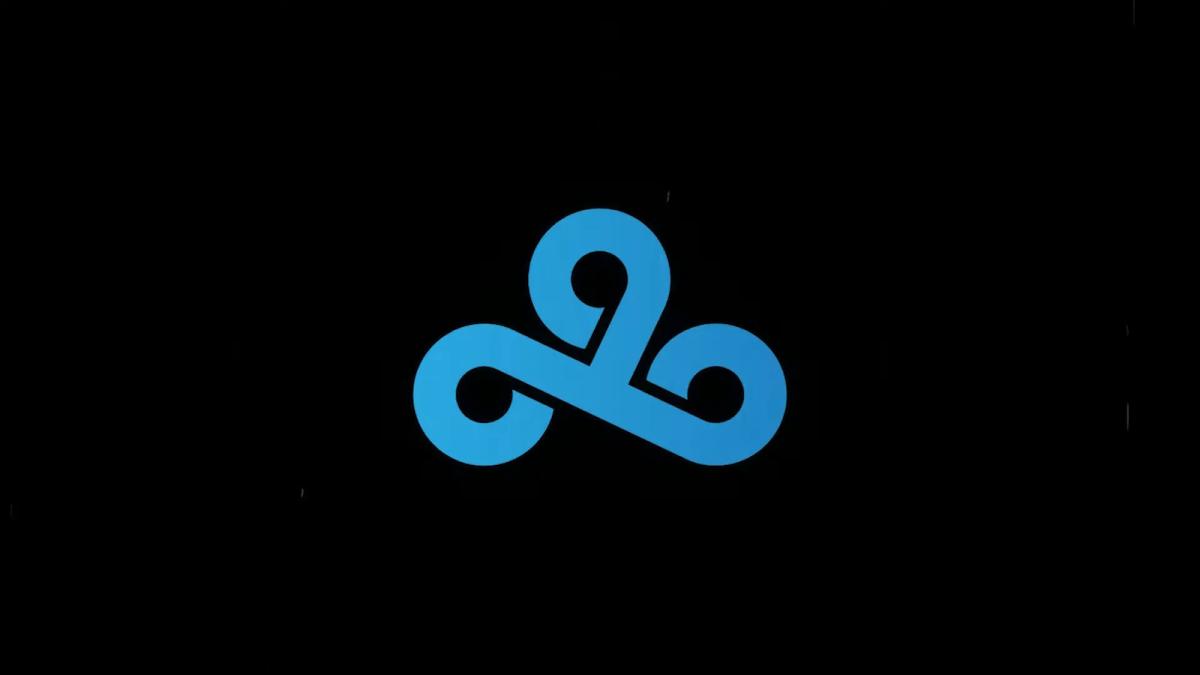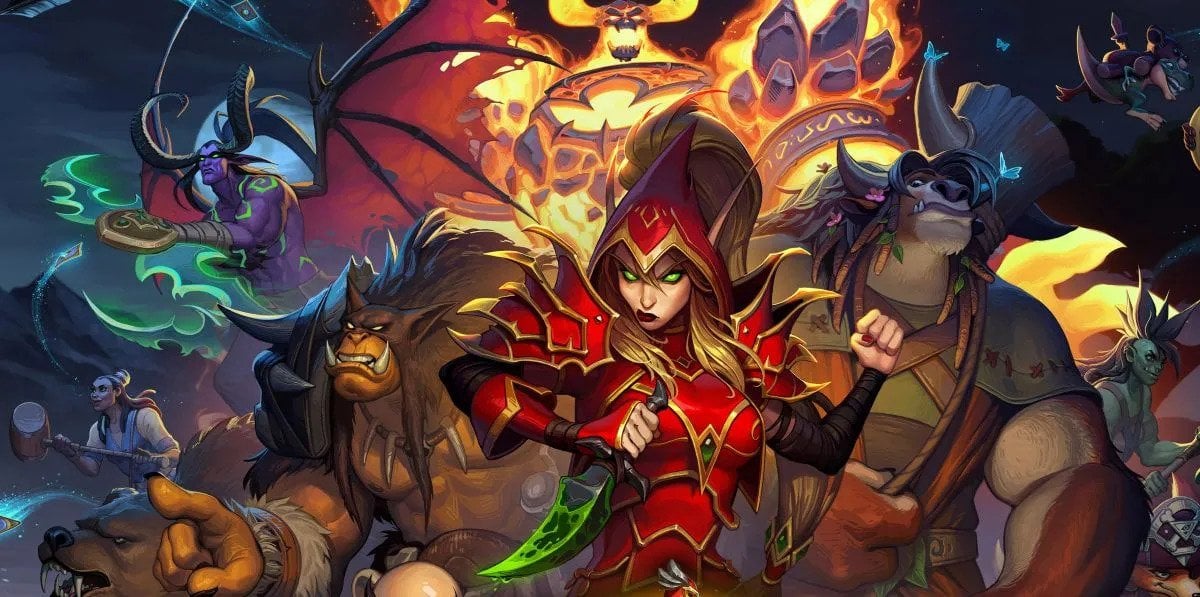Introduction
Hi I’m Kinkymuffin.
I’m here today to talk to you about an element of Hearthstone that isn’t commonly spoken of. It has a huge influence on a player’s success, failure, and more importantly, the enjoyment one takes from gaming and life in general.
I’m talking about the mental side. The psychological elements of winning and losing.
In order to better understand my reason for writing this, let me give you a brief background on how I arrived here.
A little over 6 months ago, at the age of 23, I was diagnosed with anxiety disorder and depression. To start with, I thought I was having a heart attack at work. I went to my G.P and the hospital. No one could find any reason for the pain. Finally, I spoke to a psychiatrist who helped me discover that the pain in my side was actually caused by the feeling of anxiety.
So what is it to have anxiety? It’s not just the butterflies you get before a test or the feeling of worry about missing your flight. This form of anxiety is a lot more intense. It’s the feeling of impending doom, nervous sweats, increased heart rate, fear and self-judgment that the brain simulates when you are just doing everyday activities. It manifests this pain regardless of physical injury. I’m sure there are people out there who have it worse and some who have it better, but I imagine everyone has suffered some form of anxiety at one point or another.
Ever since I discovered Magic the Gathering just over 2 years ago, I was completely hooked on anything that was card game orientated. Hearthstone is no exception. Well technically Hearthstone isn’t a TCG – since you can’t trade cards (hint, hint, Blizzard), but I still consider it a TCG. I found that I frequently got this pain from anxiety while trying to play Hearthstone. It caused me pain just thinking about starting up Hearthstone and queuing for ranked matches. It may sound counter intuitive, but I am actually quite competitive. I strive off results, and can be obsessive about almost anything if it appeals to me. I used to feel awful when I lost or misplayed, especially if Blizzard made my Defender of Argus shift to the wrong side. From a simple mistake, I would feel like the worst person in the world. First world problems right? Maybe, but it’s important to understand that this doesn’t discredit the feelings or make them less significant.
The way someone feels and reacts to a situation is subjective. It is relevant to the person experiencing it, and it’s as real as anything else. However in this case, these thoughts are irrational and coming to terms with that is ultimately what can put you ahead in the psychological battle against anxiety.
What Is Anxiety & How Do We Face It
Imagine anxiety as a small object in your head. If you try to run from it, or you succumb to it, you give it power. It grows and it becomes harder to manage. However if you simply acknowledge it, accept that it’s there, but don’t listen to it, you take away its power. Without power it is nothing, it does nothing and can do no harm. This is easier said than done, and in order to overcome anxiety, whether it’s from Hearthstone, or the finals of a university exam, it’s important to understand the thought process which generates that anxiety.
Everyone likes to win. I don’t think I’d be lying if I assumed that everyone prefers victory over defeat. What are the feelings associated with winning? Happiness, joy, pride, and usually a sense of achievement or accomplishment. What about losing? Disappointment, resentment, anger, frustration, and bitterness.
Let’s take two subjects and examine the thought process that occurs after a loss in Hearthstone. Subject A is myself and how I used to feel in this situation. Subject B is an anonymous person who has no record of anxiety or depression.
Scenario: You’re playing ranked constructed – you’re in the mirror match and at your at the best rank you’ve ever been. You’re one star off rank 3, and you’ve been playing for a few hours to battle your way to this point. The match is close, and it’s hard to tell if you made any serious mistakes, but you do feel that you could have played it better or at least differently. You lose the turn before you have lethal as your opponent has exact lethal in hand and just enough mana crystals to pull it off (stupid Leeroy Jenkins, Cold Blood, Shadowstep grumble…). The game ends, and the defeat text makes its way arrogantly onto the screen.
Subject A, me: The feeling of sheer disappointment and frustration begins to churn in my stomach. “I cannot believe I lost this game”. It was so close. Trying to work out how likely it was, statistically, for my opponent to have those cards at that point in the game, I become increasingly more emotionally involved in the defeat. I start to look for answers. Why did I make that play? What if I had done that differently? So far this is normal, but this is where subject A and B differ greatly. I start to judge myself: “Man you suck. You should be better. You can’t even get to rank 3 at the end of the season”. Suddenly the defeat has become personal. It’s become a direct reflection on myself as a human being. Just like that, a loss in a game has caused me to feel awful about who I am. I’ve let something as small as losing become something that can crush my confidence and ruin my entire day.
Subject B, taken from an anonymous player: I feel disappointed. I mean, I think I could have won if I’d played differently. It’s frustrating at first, but I guess I don’t really care. I’ll get over it and play again. Sometimes when I mess up massively, I might take a longer break, but then I’ll just queue again. It’s only a game.
The initial reaction is surprisingly similar, disappointed, sure, but the thought process that follows is immensely different. Subject A created a direct link between defeat and self-worth. This is completely irrational thinking, and can only be detrimental to his ability to enjoy life. So how can Subject A go about overcoming this way of thinking? Firstly and most importantly, he cannot and absolutely must not deny how he feels. If he feels that way, ignoring it or denying it only causes it to get worse. It’s like sweeping feelings under the carpet: there’s only so much room. What he should do is accept it, rationalize it and let it go.
Anxiety is like getting caught in a storm without an umbrella. You’re cold, wet and probably annoyed. The key is to remember that you won’t be cold, wet and annoyed forever. You simply have to look forward to that moment. Accept that you got caught in the storm and then let it go. This concept applies directly to Hearthstone and life in general. When you lose, if you find yourself feeling tilted, bad, or in extreme cases like myself, thinking that it reflects on you as a person, simply remember that you just feel like this now, and like a storm, it will pass. Imagine it as a rain cloud over your head. It’s there now, but it can’t stay there forever. It will move on. You just have to accept and acknowledge it at the time. I go on and on about acceptance and acknowledgment and there’s a good reason for it. Without analytical and rational thinking, it is quite easy to confuse acceptance and denial. So what can we do to rationalize a situation that is making you feel anxious? When it comes to Hearthstone, there are a few procedures that I use which have been quite affective in calming myself and rationalizing a difficult situation.
Firstly, remind yourself that it’s OK to feel however you are feeling.
“It’s OK to feel anxious, it’s not a problem”
“I accept that I’m disappointed about losing that game, I acknowledge my frustration”
Secondly, rationalize the defeat or situation.
“There is always a winner, and a loser”
“You have to lose to get better”
“It is not failure to lose, it is only failure to never try at all”
“Don’t think about winning, think about improving”
“Enjoy the journey, as opposed to being fixated on the destination”
Lastly, simply let it go. Don’t overthink it, just simply re-focus and move onto the next game.
These methods work for me because they rationalize my fears. I can be scared to lose. I can be scared it makes me a worse player, that it makes me less of a person. It doesn’t. In fact losing makes me stronger. For me, simply getting through a ranked match is in itself a victory. I’ve taken a step to conquer my fear and anxiety of possible defeat.
Further Techniques To Improve Your Mind
This is just one of the techniques you can use to help improve your mental approach to Hearthstone. Exercise, for example, is extremely useful in maintaining and improving your psychological well-being. Simply running for 30 minutes every two days will make a huge difference. You won’t notice a difference to begin with, but after a few weeks you’ll start to see the effect. It takes the edge off. Running is proven to be one of the most effective ways to boost your serotonin levels (Serotonin is a naturally occurring chemical that is responsible for regulating brain functions such as mood, sleep, appetite, memory etc).
Another technique that can greatly help is to pre-emptively look forward to something happening. Say to yourself “I look forward to when I’m a lower rank. I look forward to when I can play this deck more skilfully”. When you look forward to something, not only are you creating positive feelings and energy, but you are also giving yourself confidence to get there. This doesn’t mean you can look forward to flying and wake up the next day with wings, so it’s important to try to be realistic about your expectations. It’s important not to set a time limit, but simply look forward to when. If you maintain this attitude and persevere, you will be always moving closer to your goals.
One of the reasons that a positive and calm attitude towards Hearthstone is absolutely necessary to improve, is that using nervous mental energy is one of the fastest ways to exhaust yourself. It is a lot harder to play Hearthstone, a game that relies so heavily on thinking analytically and statistically about each and every play, when you are mentally drained. Changing your behaviour will be difficult to start with. You’ll be focusing on improving your mentality while playing. You may actually play less efficiently, but this a step that must be taken in order to get better. I can assure you that Hearthstone is a game of variance and imperfect information that is won and lost on the smallest of decisions. It will become immensely easier once you can be efficient and composed for greater durations.
If you watch the best players in the world, you’ll notice that many of them can remain composed and calm for long periods of time. The only way to improve this is to play, focusing more on remaining calm and composed than the actual results of the game. There’s a reason it’s so important. The more you play, the easier it gets to climb, as not only do you get better, but Hearthstone theoretically only requires a win rate higher than 50% in order to hit legend. Even if your win rate is 50.5%, if you play enough games, you will hit legend at some point. While the best players may have astoundingly high win rates, such as 65% or more, most players are probably quite close to the 50% mark. This is why the ability to play optimally for longer periods is such a necessary skill in order to climb the ladder efficiently.
Conclusion
I hope this article helps you to see what makes the mental side of Hearthstone so significant, and if you find you are struggling to get better, I would encourage you to try working on your mental game. You never know, maybe it’s the key to unlocking your true potential. I know it’s the key for me, and I look forward to when I verse the final boss, the gatekeeper and the glorious victory which follows allowing me to enter the prestigious land of the legendary. It’s only a matter of will-power, so I ask you, what will you do?
P.S Don’t forget to pray to RNGesus & if you have any questions feel free to post in the comments below!
Kinkymuffin
Read my Blog on Anxiety & Depression
Follow me on Twitch for Anxiety Awareness





Published: Jul 6, 2014 04:00 pm